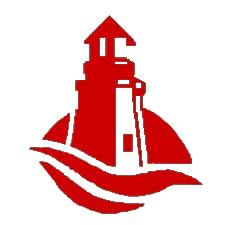
Residential Locksmith
Add a reviewOverview
-
Sectors Estate Agency
-
Posted Jobs 0
Company Description
A Brief History Of The Evolution Of House Lock Options
An In-Depth Guide to House Lock Options: Ensuring Your Home’s Security
Security is a critical issue for property owners, and one of the very first lines of defense in protecting a residence is the lock. With numerous types of locks available in the market, choosing the right one can be intimidating for numerous. This article will delve into the various kinds of house lock options, their features, benefits, and elements to think about when picking the perfect lock for your home. Furthermore, we will offer answers to some often asked questions to help clarify any unpredictabilities.
Kinds Of House Locks
When it concerns house locks, there’s a broad array of options customized to match different requirements and preferences. Below is an in-depth summary of the most typical kinds of locks.

1. Deadbolt Locks
Deadbolt locks are extensively acknowledged for their strength and security. They have a strong metal bolt that extends into the door frame, making them more resistant to forced entry.
- Single Cylinder Deadbolts: Operate with a key on the outdoors and a turn knob on the within.
- Double Cylinder Deadbolts: Require a key for both the outside and interior; much better for doors with glass panels.
2. Knob Locks
Knob locks are frequently set up on residential doors; however, they are frequently utilized in combination with deadbolts for enhanced security.
- Benefits: Easy to set up and use.
- Drawbacks: More susceptible to selecting and forced entry.
3. Lever Handle Locks
Levers are easier to open than knobs, which can be beneficial for people with movement issues.
- Types:
- Privacy Locks: Used for bed rooms and bathrooms.
- Keyed Levers: Provide improved security for outside doors.
4. Smart Locks
Smart locks provide advanced technology and benefit, allowing homeowners to manage access to their homes by means of mobile phones or keypads.
- Functions:
- Remote access
- Combination with home automation systems
- Short-lived access codes for guests
5. Chain Locks
Chain locks include an extra layer of security by permitting a door to be a little opened while still being protected.
- Best for: Residential doors where a little visibility is required without complete gain access to.
6. Mortise Locks
Mortise locks are more complicated and generally used in commercial settings; however, they can likewise be set up in residential properties.
- Benefits: High-security functions and toughness.
Comparison Table of Common House Lock Options
| Lock Type | Security Level | Common Use | Advantages | Downsides |
|---|---|---|---|---|
| Deadbolt | High | External doors | Strong and tamper-resistant | Needs professional installation |
| Knob Lock | Medium | Interior/external doors | Easy installation | Less safe on its own |
| Lever Handle | Medium | Interior/external doors | Easy to use, available | Prone to required entry |
| Smart Lock | High | External doors | Remote access, hassle-free | Dependence on technology |
| Chain Lock | Low | Secondary security | Simple and efficient for presence | Low security level |
| Mortise Lock | High | Industrial and residential | Resilient, high security | More pricey and complex |
Elements to Consider When Choosing a Lock
When picking a lock for your house, it is vital to assess several elements to ensure you select the best type for your home’s security needs.
1. Security Needs
- Evaluate the criminal activity rate in your neighborhood.
- Consider the value of products you require to protect.
2. Kind of Door
- Guarantee the lock type you choose works with your door material (wood, metal, fiberglass).
3. Reduce of Use
- Consider relative’ needs, such as children or senior individuals who might need much easier gain access to.
4. Installation
- Figure out whether you desire a lock that needs professional installation or if you prefer an easier DIY option.
5. Spending plan
- Element in the cost of the lock, consisting of installation if required. Smart locks tend to be more costly however use innovative features.
Often Asked Questions (FAQs)
Q1: Are wise locks safe?
A1: Yes, smart locks can be safe if installed properly and upgraded routinely. Guarantee they have robust file encryption and think about setting up two-factor authentication for included security.
Q2: Which lock is best for an exterior door?
A2: A deadbolt lock or a smart lock is ideal for outside doors due to their improved security features.
Q3: Can I install a deadbolt myself?
A3: Yes, deadbolt locks can be installed as a DIY job; nevertheless, it needs exact measurements and tools. Hiring a professional might guarantee better security and fit.
Q4: How do I keep my locks?
A4: Regularly inspect your locks for rust or wear. Oil them with graphite powder at least when a year and make sure no particles is obstructing the system.
Q5: What should I do if my key breaks inside the lock?
A5: Contact a locksmith for assistance. Trying to remove a damaged key yourself may damage the lock and make it more tough to repair.
Selecting the best house lock is crucial for protecting your home. With various options offered, consisting of deadbolts, wise locks, and more, homeowners must examine their security top priorities, ease of usage, and budget to make an informed decision. By comprehending the strengths and Www.Repairmywindowsanddoors.Co.Uk weak points of each type of lock and considering the specific requirements of your home, you can with confidence strengthen your house against prospective invasions. As making sure home security is a complex procedure, constantly consider seeking advice from a locksmith for expert guidance tailored to your special situation.

